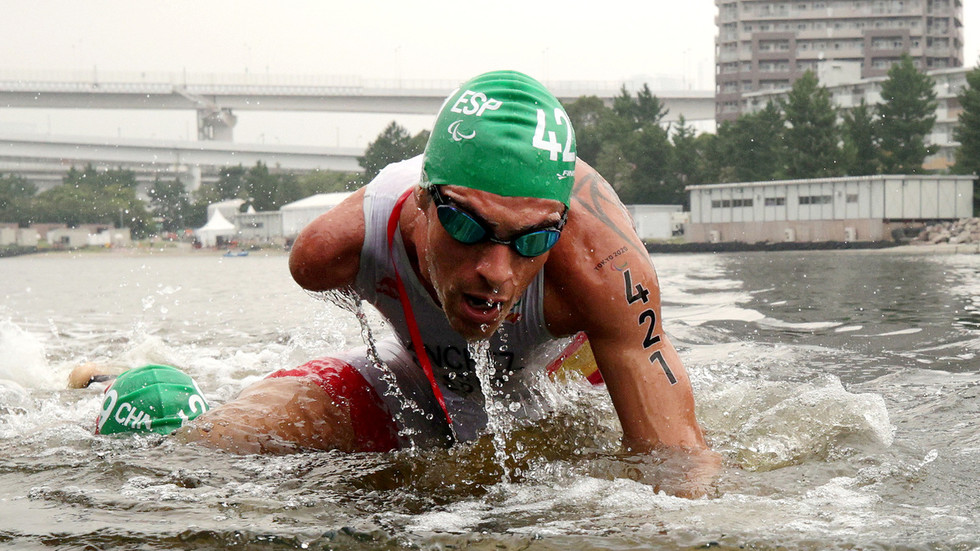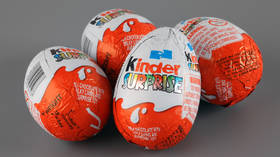
Seawater samples showed concentrations of E Coli 39 times greater than normal levels

Alejandro Sanchez Palomero of Team Spain exits the swim portion of the men’s PTS4 Triathlon on day 4 of the Tokyo 2020 Paralympic Games at Odaiba Marine Park on August 28, 2021 in Tokyo, Japan © Getty Images / Adam Pretty/Getty Images
At least 57 competitors at the World Triathlon Championships in Sunderland, England contracted illnesses, including diarrhea, after taking part in sea-swimming events last weekend, health officials have said.
The championships, which featured around 2,000 triathletes last Sunday, included a swimming stage at Sunderland’s Roker beach – a section of coastline which has been at the center of controversy regarding the dumping of raw sewage by water companies. The UK Health Security Agency (UKHSA) said that it is testing samples from competitors who fell ill, to determine if common pathogens can be identified.
An analysis of the seawater at Roker beach by the UK’s Environment Agency three days before the race found the water to have a concentration of E Coli 39 times greater than samples taken the previous month.
E Coli is a bacteria that can cause stomach complaints and bloody diarrhea. British Triathlon, the body that regulates the sport in the UK, said that the results of the analysis were not published until after the triathlon had been completed. It added that the seawater had passed its own independent regulatory tests before the start of the competition.

Read more
“Have been feeling pretty rubbish since the race,” triathlete Jacob Birtwhistle wrote on Instagram of the findings of the analysis, according to the Guardian on Saturday. “But I guess that’s what happens when you swim in sh*t.” Another triathlete responded to the post: “That now explains why I spent Monday night with my head in the toilet after I raced on Sunday morning.”
Northumbrian Water, the company that provides water and sewerage services to 2.7 million people in England’s north-east, including Sunderland, said that it had not recorded any raw sewage discharges which might have affected water quality. “We have had no discharges from any of our assets that might negatively impact water quality at Roker … since October 2021,” it said via a spokesperson.
British Triathlon, meanwhile, said that it is collaborating with Sunderland’s city council and the UKHSA to determine the cause of the various illnesses that emerged following the race. Several factors, including sewage overflows and run-off water from nearby roads and fields, can negatively impact water quality in affected areas.




